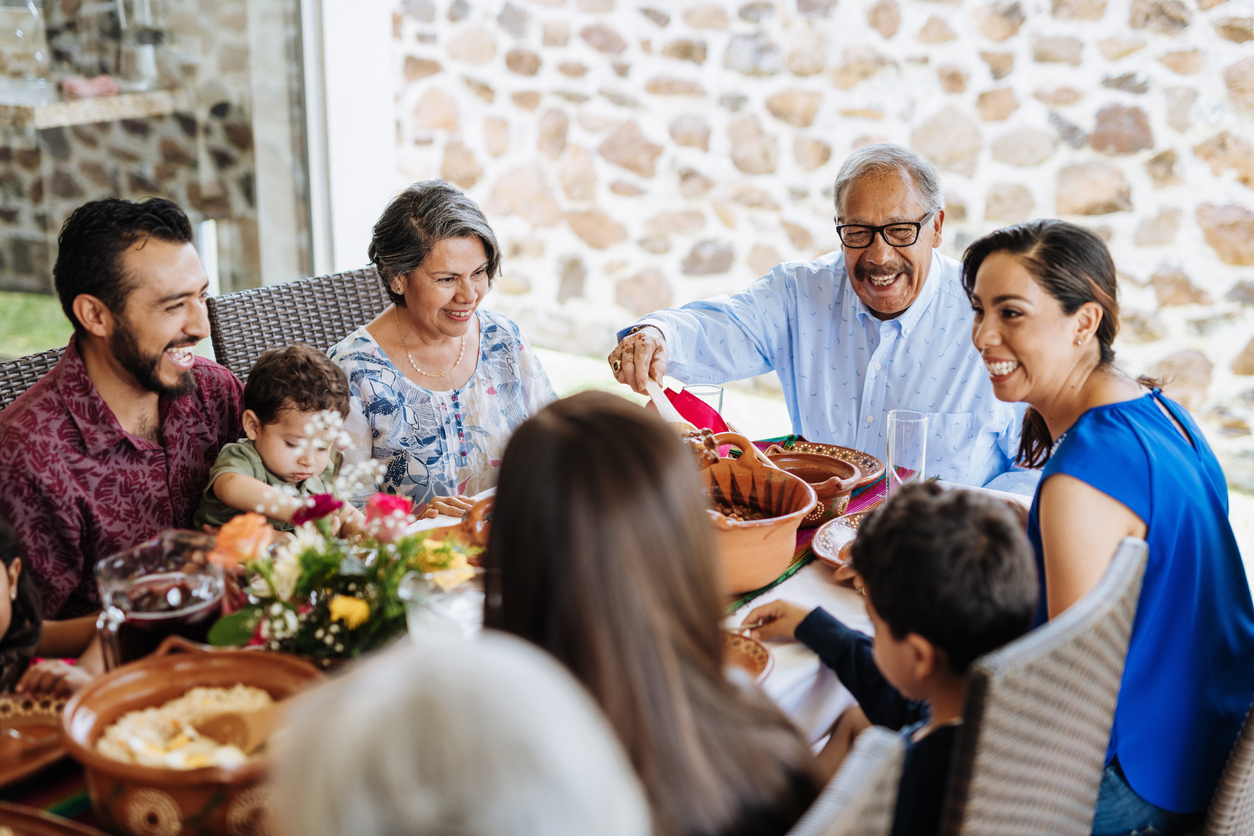
Latin, Spanish and Hispanic cultures are renowned for their rich traditions, vibrant celebrations, and deep sense of community. Among the core elements that define these cultures, two stand out as paramount: family and food. In this article, we will explore the profound significance of family and food in Hispanic cultures and how they intertwine to create a unique and cherished way of life.
Family: The Foundation of Life
In Latin and Spanish cultures, family is more than just a group of relatives; it is the cornerstone of one’s identity and support system. Families are known to be close-knit, often spanning multiple generations, and offering unwavering support in both good times and bad. The importance of family is embedded in the very essence of these cultures and permeates every aspect of life.
Familismo is a cultural concept deeply ingrained in Latin and Spanish societies. It emphasizes the central role of the family in an individual’s life. Family members are expected to prioritize their immediate and extended families above all else, and this value fosters strong bonds that endure throughout generations.
Celebrating Milestones Together
Family gatherings are frequent and filled with warmth and love. From birthdays to weddings to religious ceremonies, every significant milestone is an opportunity for family members to come together, celebrate, and reinforce their connections. These gatherings are characterized by laughter, lively conversation, and, of course, delicious food.
Food plays a pivotal role in Latin, Spanish and Hispanic cultures, transcending mere sustenance to become a form of expression, tradition, and connection. The cuisine of these regions is diverse, flavorful, and steeped in history.
Traditional Dishes: A Taste of Heritage
Each Latin American and Spanish region boasts a unique array of traditional dishes. From paella in Spain to beans and rice in Mexico, these dishes are a celebration of cultural identity and heritage. Preparing these recipes often involves passed-down family secrets and techniques, preserving a sense of continuity.
And meals are not just about nourishment; they are a means of bringing family members together. Whether it’s a casual weekend barbecue or an elaborate holiday feast, sharing meals is a cherished bonding ritual. It’s a time when stories are shared, traditions are passed on, and familial ties are strengthened.
Along with family gatherings, festivals have become a large part of tradition with food being at the center. Hispanic cultures are known for their vibrant festivals, and food is an integral part of these celebrations. From Dia de los Muertos in Mexico to La Tomatina in Spain, festivals often feature traditional dishes that showcase the unique flavors of each region.
Cultural Identity in Food
The bond between family and food in Latin and Spanish cultures is undeniable. These two elements intersect in myriad ways, reinforcing the importance of both. For many, preparing traditional dishes is an act of love and devotion to family. The effort and care put into cooking are tangible expressions of affection. Grandmothers, in particular, are often revered for their culinary skills, passing down recipes through generations.
Family recipes are a means of preserving tradition and cultural identity. They carry with them the stories of ancestors and the flavors of home. Teaching the next generation to prepare these dishes is a way of ensuring that the culture lives on. Family gatherings, centered around food, provide opportunities for reconnecting and strengthening familial bonds. These gatherings are essential moments for storytelling, laughter, and the sharing of life’s joys and sorrows.
In honor of National Hispanic Heritage Month, we are highlighting the love, nourishment and importance that family and food provide and enrich the lives of those who embrace these cultural values. As we celebrate these enduring traditions, let us recognize and appreciate the importance of family and food in Latin and Spanish cultures, and perhaps, in our own lives as well. After all, there is nothing quite like the warmth of a family’s embrace and the taste of a well-prepared family recipe to bring joy and meaning to our lives.